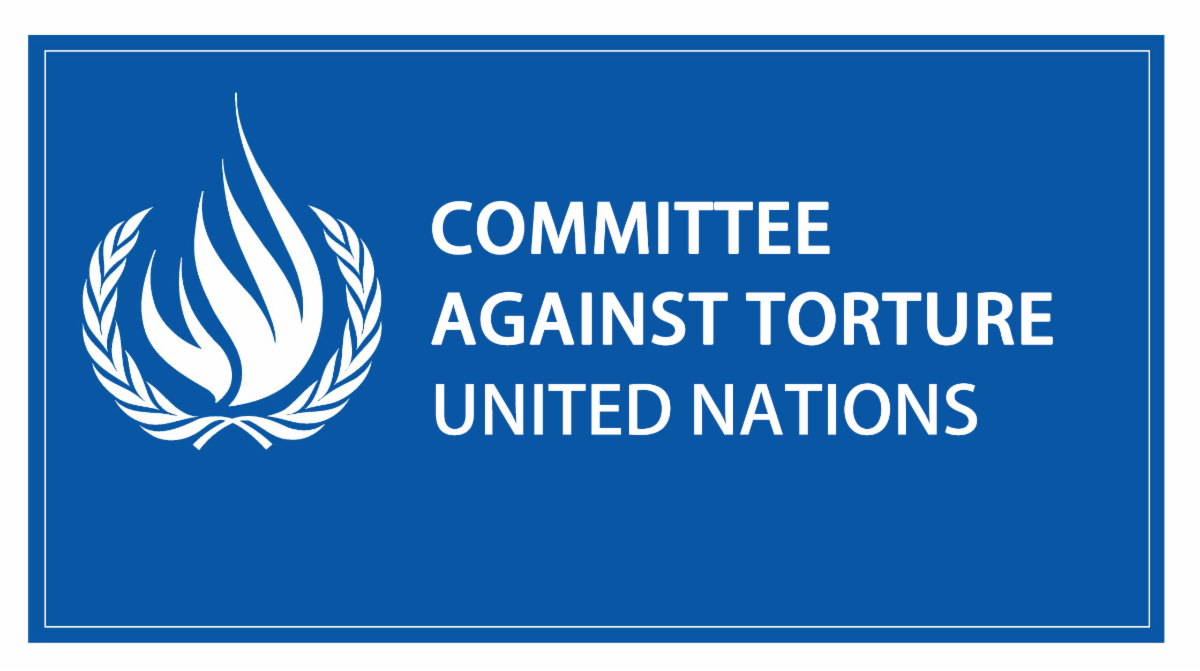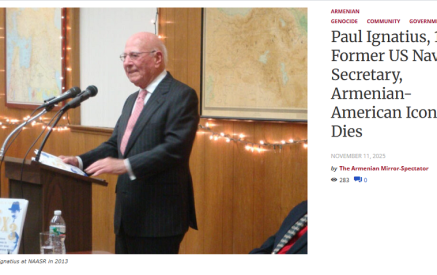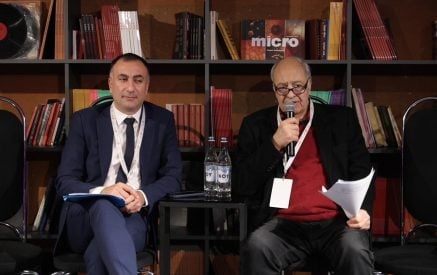UN Committee Against Torture Issues Findings On Azerbaijan and Mistreatment of Armenians
Washington, DC – The UN Committee Against Torture released in its findings today violations of international humanitarian law and human rights law related to the treatment of ethnic or national Armenians by Azerbaijan, which was deemed as “totally unacceptable,” reported the Armenian Assembly of America.
Azerbaijan came under “heavy criticism” for unlawful practices by international standards of justice in a section devoted to the ‘Conflict in Nagorno-Karabakh,’ where it emphasized its concern for the “severe and grave violations of international humanitarian law and human rights law committed by Azerbaijani military forces against prisoners of war and other protected persons of Armenian ethnic or national origin.”
In a public statement, the UN Committee noted that it was “alarmed by alleged extra-judicial killings, torture, and ill-treatment of national and ethnic Armenians during armed conflict and anti-terrorism operations, and the perceived lack of investigations and prosecutions of these allegations.”
Read also
The Committee also expressed concerns over the continued detention of 23 individuals of Armenian ethnic or national origin and called for “independent, impartial, transparent, and effective investigations into the allegations of serious violations and urged the State party to bring those responsible to justice.”
The report stressed that “international humanitarian law is applied during all international and non-international armed conflicts to which the State party is a party,” and that investigations and prosecutions include the “acts of any persons in a position of command or superior responsibility who knew or should have known that his or her subordinates had committed, or were likely to commit, extrajudicial executions, torture or ill-treatment, or other war crimes, and failed to take reasonable and necessary preventive measures.”
The UN report also methodically addressed a wide scope of violations by the government of Azerbaijan against its own population, including allegations of torture and ill-treatment, the harassment of human rights defenders and journalists, hate crimes, hate speech and discrimination, gender-based and domestic violence, corporal punishment, among other concerns.
“The Armenian Assembly welcomes the United Nations report and urges the international body to follow upon its recommendations and ensure the rights of all persons in Azerbaijan be respected, especially taking into consideration the unlawful arrest of leaders of Nagorno-Karabakh, the continued detention of wartime captives despite bilateral agreements with Armenia about their release, and the continued detention of Armenians for no reason other than their ethnic identity,” said Assembly Co-Chairs Van Krikorian and Anthony Barsamian.
Armenian Assembly of America
On May 10, 2024, the United Nations Committee Against Torture released its Concluding Observations following its fifth periodic review of Azerbaijan. The advance unedited version of the Observations are available for download here.
The Committee monitors States’ compliance with the 1984 Convention against Torture and other Cruel, Inhuman or Degrading Treatment or Punishment. If it determines that a State is not meeting its legal obligations, it will issue suggestions and recommendations to the State to achieve compliance. Its previous review of Azerbaijan took place in 2015.
Civil society groups had the right to make written submissions to the Committee, and present orally to the Committee at the U.N. Palais Wilson in Geneva on April 22. The Armenian Bar Association did both, in coordination with other Armenian groups.[1] Then, on April 23 and 24, the Committee engaged in a six-hour dialogue with Azerbaijan’s State representatives – and its questioning was based in large part on the ABA’s and other groups’ submissions.[2]
Committee Findings
In its Concluding Observations (paras. 22-25), the Committee made significant and targeted findings against Azerbaijan’s conduct towards ethnic Armenians.
Perhaps most importantly, referring to the “conflict in Nagorno-Karabakh,” the Committee expressed its “deep concern regarding [Azerbaijan’s] conduct of what it describes as anti-terrorism operations,” in other words the military action by which Azerbaijan ethnically cleansed Nagorno-Karabakh on September 19-20, 2023. The Committee’s concern extended to “the continued detention of what [Azerbaijan] describes as 23 individuals in connection with terrorism,” referring to the detained former Nagorno-Karabakh leaders.
The Committee also noted “the effect that discriminatory statements made by high-level officials and disseminated in both online and offline media may have in creating an environment that greatly increases the likelihood of the commission of violence against persons of Armenian national or ethnic origin and other minority groups.”
The Committee furthermore acknowledged reports of “extrajudicial killings, torture and other ill-treatment” against ethnic Armenians, and “the recording and dissemination of videos that appear to depict horrifying acts involving beheadings of live individuals, desecration and mutilation of corpses, and acknowledgment on-camera by the perpetrators of responsibility for such abuses in a manner that strongly suggests they did not fear being held accountable.” And – based on Azerbaijan’s own responses during the dialogue – only five individuals have been prosecuted, but “none of the sentences imposed in those cases were for extrajudicial killings, torture or ill-treatment, and no sentence required the imprisonment of any offender.”
Committee Recommendations
The Committee emphasized that “the prohibition of torture is non-derogable, that no exceptional circumstances whatsoever, whether a state of war or a threat of war” can justify it.
It recommended that Azerbaijan “make clear at the highest levels that any violations of international humanitarian law and human rights law related to the conflict in the region, or otherwise related to the treatment of ethnic or national Armenians, are totally unacceptable,” and that Azerbaijan promptly conduct full and impartial investigations into allegations of extrajudicial executions, torture and ill-treatment against ethnic Armenians.
It recommended that Azerbaijan fully apply international law concerning the immunity and release of combatants.
It recommended that Azerbaijan join the International Criminal Court.
Finally, it stated that “[Azerbaijan] should publicly condemn hate speech, threats and attacks against persons of Armenian national or ethnic origin and all other minority groups, at the highest levels, and refrain from endorsing, through action or omission, such threats and attacks.”
Conclusion and Significance
The Committee’s findings confirm the fact of official hatred in Azerbaijan against ethnic Armenians, which manifests itself in torture and impunity for torture. This establishes at the highest international level that once the displaced residents of Nagorno-Karabakh return to the territory, they cannot be directly subject to Azerbaijan’s authority.
Armenian Bar Association

























































